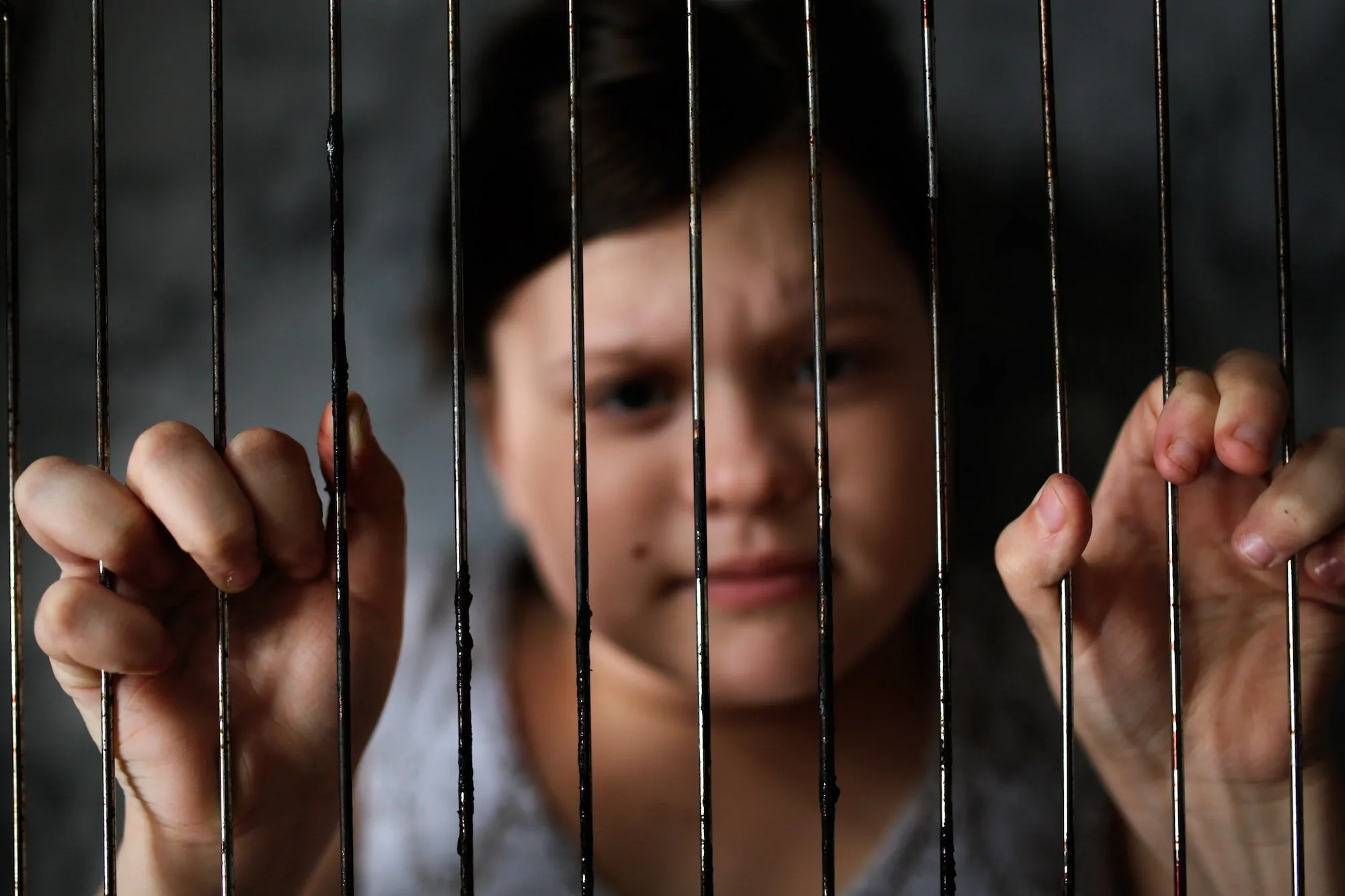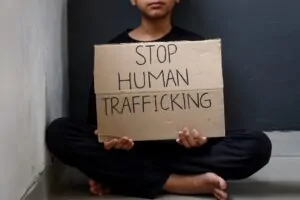
Hotels and motels have become unwitting battlegrounds in the fight against human trafficking. Traffickers often exploit the relative privacy and anonymity hotels offer, using guest rooms as sites for sexual exploitation or even forcing victims into hotel service jobs. According to the Polaris Project, an anti-trafficking NGO, 75% of trafficking survivors report encountering hotels during their exploitation, yet 94% say hotel staff did not intervene or offer help. Traffickers favor hotels because of the “ease of access for buyers, ability to pay in cash and maintain secrecy” that these venues provide. Luxury resorts and roadside motels alike have been used for illicit activities, as traffickers seek locations with lax oversight – whether a busy urban hotel where anonymous check-ins raise few eyebrows or a smaller motel with minimal staff on duty.

This hidden crisis has begun to surface through survivor testimonies and data from hotlines. The National Human Trafficking Hotline regularly receives reports of trafficking happening in hotel rooms, ranging from high-end chains to budget inns. Victims recount being shuttled between hotels, forced to meet buyers night after night, or being held for extended periods in a single motel. In some cases, housekeeping or front-desk employees observed alarming signs – such as dozens of men coming to a room in one day, guests visibly malnourished or bruised, or minors accompanied by domineering adults – yet failed to act. Many hotels historically lacked training or protocols, so even well-intentioned staff often did not recognize the red flags of trafficking. This combination of factors has made hotels attractive to traffickers and difficult for law enforcement to monitor, allowing abuse to continue unseen by the general public.
Legal Accountability: Notable Lawsuits Against Hotel Chains
Table of Contents
ToggleIn recent years, a wave of lawsuits has shone a harsh light on hotel industry practices, accusing major hotel companies of turning a blind eye to sex trafficking on their premises. Dozens of women across the country have filed suits claiming that hotel chains – including Hilton, Marriott, Wyndham, and others – ignored obvious signs that they were being trafficked, while the hotels continued to profit from the rooms.

These civil lawsuits, filed in numerous states, typically invoke the federal Trafficking Victims Protection Reauthorization Act (TVPRA), which allows victims to sue any party that knowingly benefits from a trafficking venture. The plaintiffs argue that hotel operators and even corporate parents financially benefited from renting rooms to traffickers or buyers, and “knew or should have known” that criminal exploitation was occurring on their properties.
Several high-profile cases illustrate the scope of the problem and the legal repercussions for hotels:
- Days Inn (Philadelphia, PA) – In a landmark 2023 case, the owner of a Days Inn in Northeast Philadelphia was ordered to pay $24 million to eight underage trafficking victims. A court found that over a period of three years, hotel management knew about the sex trafficking of 14- to 17-year-old girls on the property and did nothing to stop it. The victims were held and sold for sex in rooms for days or weeks at a time, in what the lawsuit described as an “open, obvious and notorious” trafficking operation that staff failed to intervene in. This verdict sent a clear message that hotels can be held accountable for egregious inaction.
- Red Roof Inn (Atlanta, GA) – In 2024, a group of 11 women reached a historic settlement with Red Roof Inn after the first sex-trafficking civil case against a major hotel brand to reach trial. The survivors alleged that from 2009 to 2018 they were repeatedly sold for sex at two Atlanta-area Red Roof Inn locations, and that the hotel corporation had direct knowledge of the persistent trafficking at those franchised properties. After three weeks of jarring testimony, Red Roof’s corporate entity settled the case confidentially. Evidence presented at trial showed the trafficking at those motels was “visible and frequent,” and that multiple hotel employees actively assisted traffickers or deliberately ignored the abuse to maximize room revenue. Internal records and employee testimonies even indicated that some corporate staff were aware for years that minors were being sexually exploited on site, yet no effective action was taken. The case’s resolution – described by the survivors’ attorneys as a “historic” victory – underscored that even franchisors can face liability if systemic failures are proven.
- Multiple Chains (Nationwide) – Beyond individual hotels, a broader legal offensive is underway against the hospitality industry. By 2020, over 40 federal lawsuits had been filed by trafficking survivors against hotel companies, and that number has continued to grow. As of early 2024, lawyers for victims were seeking to consolidate more than 50 pending cases – a mass litigation effort implicating brands such as Red Roof Inns, Wyndham Hotels & Resorts, Choice Hotels, Best Western, Marriott, and Hilton. One plaintiffs’ firm reported it alone represents approximately 1,700 victims and plans to file 1,000+ additional lawsuits against various hotel defendants. The allegations across these suits are strikingly similar: that traffickers openly used hotel rooms for illicit activity and that those hotels’ employees and managers “either knew or should have known” what was happening but failed to act. In some complaints, survivors recount horrifying details – for instance, one woman described a scenario where a victim was left unconscious in a hotel bathtub after an evening of abuse; when she alerted a manager, “he didn’t come to help the girl… He came to clean up the water,” exemplifying the indifference alleged in these cases.
These lawsuits signal a turning point by using civil litigation to impose accountability. 125 hotel and motel entities across the U.S. have reportedly been sued to date for failing to prevent or notice trafficking on their properties. The legal outcomes vary. In some instances, hotels have quietly settled claims to avoid protracted trials and damaging publicity (as seen with Red Roof Inn and others). In other instances, judges have allowed cases to proceed toward trial, recognizing that the TVPRA was intended to hold third-party beneficiaries of trafficking accountable if they overlooked glaring signs of crime. However, not every lawsuit succeeds – a few courts have been reluctant to extend liability to distant corporate parents or franchisors without clear proof of knowledge. For example, in S.C. v. Wyndham Hotels (decided 2024), a federal judge in Ohio dismissed claims against several hotel franchisor companies (Wyndham, Choice Hotels, and Red Roof’s corporate entities) because the plaintiff could not show the parent companies had any actual notice of the trafficking or control over the franchisee’s operations. Such rulings highlight the ongoing legal debate over how far up the corporate chain responsibility should travel.
Nonetheless, the overall trend in the courts has put the hotel industry on notice that turning a blind eye to trafficking is not just a moral failing but a serious legal risk. Major chains are expending significant resources on defense attorneys to fight these claims. The reputational damage from being named in a trafficking lawsuit – often with graphic allegations – has also spurred hotels to re-examine their policies. The spate of litigation has effectively exposed industry-wide lapses, from lax security and poor training to, in the worst cases, complicity of staff in the crimes.
How Hotels Have Enabled Trafficking: Patterns of Negligence
Testimony and evidence from these lawsuits have shed light on common failures by hotel staff and management that allowed trafficking to occur unchecked. A recurring theme is inaction: employees noticing something was off but not responding. In many cases, victims and witnesses say obvious red flags were ignored – for example, a guest room being paid for in cash and visited by dozens of men in a single day, or an adult man coming to the front desk daily to extend a young girl’s stay. Housekeepers have reported entering rooms to find large caches of condoms, excessive trash, or signs of violence (broken furniture, bloodstains), yet no one investigated further. Night managers observed teenagers loitering in lobbies scantily dressed or appearing disoriented, but failed to question their circumstances. Lawsuits argue that basic anti-trafficking protocols were “often lacking” – staff weren’t trained to recognize what they were seeing, and they had “no procedures or guidelines to act upon” even if they did suspect something. In some instances, employees who did have concerns felt uncertain how to report it or feared repercussions for intervening, pointing to a breakdown in corporate policy and communication.
Worse still, some cases have uncovered active collusion or willful blindness by hotel personnel. The recent Red Roof Inn trial in Atlanta revealed that certain employees accepted payments or favors from traffickers in exchange for alerting them to police presence or providing extra room amenities. At those locations, staff were allegedly instructed by management to prioritize keeping rooms filled (and revenue flowing) over guest safety, leading them to deliberately overlook blatant misconduct. Documents showed that trafficking was happening “in plain sight” on the premises for nearly a decade, yet reports of suspicious activity were routinely brushed aside. In the Philadelphia Days Inn case, the hotel’s own security guard — who was later found to be unlicensed and had a prior felony — allegedly knew minors were being prostituted on-site but did nothing, and management kept him employed despite his illegal status. These kinds of egregious inactions (failing to call law enforcement, failing to eject the traffickers) and actions (actively facilitating, such as renting rooms under special arrangements or providing cover) form the core of survivors’ claims that hotels “allowed the crime to occur in exchange for financial gain”.
From the evidence presented in court filings, a picture emerges of systemic negligence in parts of the hotel industry during the years these crimes occurred. Many hotels focused on occupancy and profits above all else, and as long as rooms were paid for, there was little incentive to peer behind the closed doors of guests. Training on human trafficking was minimal or nonexistent in many chains until the late 2010s, meaning front-line workers did not have the knowledge to interpret signs of abuse. Some companies lacked formal policies on what to do if trafficking was suspected, leaving individual employees to make judgment calls – often the wrong ones. This industry-wide complacency is what plaintiffs’ lawyers have characterized as “corporate willful blindness.” The lawsuits aim to not only win compensation for survivors, but to force a reckoning that drives hotels to institute dramatic changes in how they detect and prevent trafficking.
Preventing Human Trafficking: Best Practices for Hotels

In the face of this crisis, experts and advocacy groups stress that hotels must take proactive steps to prevent human trafficking on their premises. Preventative measures can significantly reduce the likelihood of exploitation going unnoticed. Key best practices include:
- Employee Training and Awareness: Comprehensive training programs for all staff – from housekeeping to front desk to security – are essential. Employees should learn the common indicators of trafficking (e.g. frequent requests for new linens or towels, guests who avoid eye contact or appear controlled by another, unusual numbers of people coming and going from a room) and know how to respond safely. Training should emphasize that if something “doesn’t look right,” employees should report it, rather than dismiss their instincts. Many major hotel companies have begun mandatory training (often in partnership with organizations like ECPAT or Polaris). Notably, Marriott International developed a detailed training curriculum in collaboration with anti-trafficking experts and made it available industry-wide; by 2020 this program helped train over 500,000 hotel workers across various brands. Ongoing refresher courses keep awareness high.
- Clear Reporting Protocols: Hotels should establish a clear internal protocol for employees to report suspected trafficking without fear of retaliation. This might include an anonymous tip line or direct escalation path to a security manager or general manager. Time is critical in these situations, so staff must know exactly whom to notify and how to safely document suspicious behavior. Protocols should also outline when to involve law enforcement. In many cases, a quick call to police or the National Human Trafficking Hotline (1-888-373-7888) can prompt a rescue operation. Protecting employees who report incidents – as proposed in some new federal legislation – is also important so that whistleblowers are supported, not punished.
- Guest Identification and Security Measures: Tightening guest registration requirements can deter traffickers who rely on anonymity. Best practices include requiring valid photo ID at check-in for all guests, using ID scanners to securely store ID’s, flagging bookings that fit trafficking patterns (e.g. local residents renting rooms frequently or paying in cash for extended stays), and monitoring hotel Wi-Fi or phone systems for signs of illicit activity. Some hotels have implemented software that alerts management if housekeeping notes suspicious room conditions or if certain “Do Not Disturb” durations are exceeded. Increased security patrols in corridors and parking lots can also disrupt traffickers’ comfort level. Crucially, collaboration with local law enforcement – such as inviting police to do periodic walk-throughs or park a patrol car visibly outside – can dissuade criminals. Hotels are encouraged to build relationships with police vice units and victim service providers before an incident occurs, so that when help is needed, coordination is seamless.
- Public Awareness and Victim Outreach: Posting informational signage is a simple but effective tool. Many states now require hotels to display human trafficking awareness posters in lobbies or guest areas, which often include warning signs and the hotline number. These notices not only educate guests (and would-be traffickers that the hotel is vigilant), but also can reach victims who may see a poster and call for help when they have a moment alone. Ensuring such posters are visible and in multiple languages is key. Some hotels also discreetly place cards in guestroom bathrooms with messages like “If you need help and are being forced, call this number…”. Beyond signage, hotels can partner with NGOs to provide victims with resources – for example, by making informational brochures available or even training staff to quietly offer assistance (like asking “Are you safe?” when someone appears in distress and only yes/no answers are possible).
- Corporate Policies and Accountability: Change must come from the top as well. Hotel corporations and owners should adopt explicit anti-trafficking policies, including zero tolerance for employees or contractors who participate in or enable trafficking. This includes conducting background checks to avoid hiring anyone with a history of exploitation crimes. Internal audits can help ensure franchised properties are complying with brand standards on security and training. Many hospitality companies have signed on to programs like the Tourism Child-Protection Code of Conduct (The Code), pledging to take six key steps to protect children from exploitation. Regularly communicating the company’s stance – for instance, a letter from the CEO to all employees about the importance of combating trafficking – reinforces that this is a priority at every level. Some brands now tie executive bonuses or performance reviews in part to safety metrics, incentivizing management to focus on this issue. Ultimately, a culture of vigilance and compassion needs to be cultivated, so that guest safety is valued as highly as revenue.
Industry associations have distilled these best practices into formal guidance. The American Hotel & Lodging Association (AHLA), for example, launched a national “No Room for Trafficking” campaign in 2019, which calls on all hotels to implement a comprehensive action plan. AHLA’s recommended steps for members include: training staff to spot and respond to trafficking, displaying signage about trafficking indicators, establishing a company-wide anti-trafficking policy, coordinating with law enforcement, and sharing success stories and best practices across the industry. Hotels following this framework are better equipped to disrupt trafficking and protect both guests and employees. In practical terms, these measures mean every housekeeper, front-desk clerk, bartender, and security guard in a hotel is empowered to act as an extra set of eyes and ears. Early intervention can save lives – for instance, an attentive night auditor who notices an unrelated man accompanying a terrified-looking teenage girl and quietly alerts police may prevent that girl from being exploited further. By adopting robust preventative practices, hotels not only reduce their legal liability, they fulfill a fundamental duty of care to those on their premises.
New Regulations and Industry Responses to Combat Trafficking
Facing mounting public pressure and legal exposure, both government regulators and the hotel industry have accelerated efforts to combat human trafficking in recent years. Lawmakers at the state and federal level have introduced new requirements to push hotels toward compliance, while industry leaders are rolling out enhanced training and awareness programs.
State Legislation: Numerous states have enacted laws mandating anti-trafficking measures in hotels. For example, California’s SB 970, effective 2020, requires all hotel and motel employers to provide at least 20 minutes of human trafficking awareness training to employees likely to interact with victims (such as front-desk, housekeeping, and bell staff), with training to be repeated every two years. California also requires hotels to post certain anti-trafficking notices in public and employee areas, reinforcing awareness. Florida has similarly aggressive laws: since 2019, Florida law mandates annual trafficking awareness training for lodging employees in housekeeping and front-of-house roles, and requires every hotel to display a public awareness poster with the state or national trafficking hotline number in a conspicuous place. Florida recently tightened enforcement, reducing the grace period for violations and imposing fines more readily for hotels that fail to train staff or post signage. Other states – including Texas, New Jersey, Illinois, and others – have passed comparable statutes requiring either training, signage, or both. In Iowa, a 2021 law went a step further: any hotel that wants to receive state government travel business (e.g. for conferences or for state employee lodging) must certify that all employees have completed an approved human trafficking prevention training. This kind of economic incentive has proven effective, as hotels risk losing lucrative government contracts if they don’t comply. As of 2025, the majority of U.S. states have some form of anti-trafficking compliance requirement for hotels, signaling that the era of voluntary action is ending. Hotels now face regulatory penalties – from fines to loss of license – if they ignore these duties.
Federal Developments: While federal law (TVPRA) provides the basis for civil and criminal trafficking cases, Congress is also considering new measures aimed at the hotel industry. In late 2024, bipartisan lawmakers introduced the Halting Of Trafficking and Exploitation in Lodging (HOTEL) Act in the U.S. House of Representatives. This legislation seeks to leverage the federal government’s purchasing power: it would ensure that the U.S. government’s “preferred” hotels for official travel and conferences are limited to those that have implemented anti-trafficking training for their staff. In essence, hotels would have a strong incentive to voluntarily adopt robust training programs in order to qualify for federal contracts and accommodations. Another proposal, the Human Trafficking Awareness Training Recognition Act, would task the Department of Homeland Security (DHS) with creating a national certification program for businesses (including hotels) that train employees to spot and respond to trafficking. Certified hotels could display a DHS seal of approval, giving consumers and partners confidence that the hotel is adhering to best practices. The idea is to provide positive reinforcement and public recognition for businesses that take the issue seriously. These federal initiatives have gained support from both anti-trafficking organizations and the hotel industry’s main trade group (AHLA), indicating a growing consensus that standardized training and oversight is needed. While as of early 2025 these bills are still pending, their introduction alone has spurred many large hotel companies to proactively review their compliance, anticipating that national standards may soon be in place.
Industry Initiatives: Independent of government mandates, the hotel industry has ramped up internal efforts to police itself. AHLA’s No Room for Trafficking campaign, mentioned above, has facilitated unprecedented levels of training. Through a partnership with a nonprofit called Protect All Children from Trafficking (PACT) (formerly ECPAT-USA), AHLA and its foundation made free training modules widely accessible to hotels starting in 2019. As a result, by mid-2021 the industry reported that over 500,000 hotel employees had already undergone trafficking awareness training using these materials. (This figure does not include additional hundreds of thousands of employees trained via proprietary corporate programs at companies like Hilton or Marriott, meaning the true number of trained hotel workers is even higher.) According to AHLA, the three online training modules provided through PACT have been taken more than 1.6 million times to date, reflecting that many workers retake courses annually or when new content is added. Hotels are also increasingly sharing data and strategies with each other – for instance, through industry conferences and working groups devoted to security and trafficking prevention. Major hotel brands have published annual Slavery and Human Trafficking Statements as part of their corporate responsibility reporting. Hilton Worldwide, for example, set a public goal to train 100% of its employees and to closely vet its supply chain for labor trafficking risks by 2030. Marriott International touts that it has trained over 825,000 associates globally since launching its program and has directly helped identify and assist numerous trafficking victims through employee reports. Other brands like Hyatt, IHG (InterContinental Hotels Group), and Wyndham have also expanded training to all their properties, including franchised locations, and often collaborate with experts to update their curricula.
Importantly, hotel companies are now working hand-in-hand with law enforcement and NGOs in a way that was rare a decade ago. Many hotels have signed memorandums of understanding with local police to quickly share information about suspected trafficking. Industry-supported hotlines have been created for hotels to get advice if they suspect trafficking but aren’t sure how to proceed. There is also movement on the technology front: some hotel chains are exploring using AI to analyze booking patterns or flag suspicious online reviews that might indicate illicit activity at a location. While privacy concerns must be balanced, the goal is to use every tool available to detect trafficking early.
The heightened focus on human trafficking in U.S. hotels represents a critical shift toward industry accountability and victim protection. What was once an unseen problem relegated to police reports and survivor stories is now front-and-center in boardrooms and courtrooms. The hospitality sector, under pressure from lawsuits, legislation, and public opinion, is being forced to confront its shortcomings. The tragic accounts of victims exploited in hotel rooms have galvanized reforms that were long overdue. If hotels implement rigorous training, establish vigilant policies, and cooperate with authorities, they can transform from unwitting facilitators of trafficking into guardians against it. The recent legal actions make clear that inaction is no longer an option – not morally, not legally. As the industry continues to roll out anti-trafficking programs and comply with new laws, there is cautious optimism that these efforts will save lives and prevent future abuses. Ultimately, success will be measured in the countless vulnerable people who may never become victims because a hotel employee recognized the warning signs and acted in time. The fight against human trafficking in hotels is far from over, but it is finally being waged in earnest on multiple fronts, bringing hope that the hospitality industry can indeed become hospitable for everyone.
